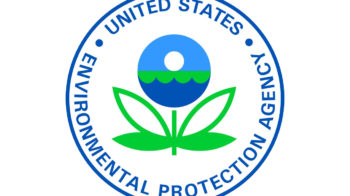
by Eric Worrall | April 28, 2020
The United Nations has moved on from conducting simple surveys which all too frequently reveal an embarrassing lack of concern about climate change. Now they ask activists to hold conversations with their followers, and claim the reported outcome of those conversations is evidence of public support for climate action.
Global public tells the United Nations: Take action on climate change and the environment
The United Nations is marking its 75th anniversary at a time of great upheaval, as COVID-19 continues to spread, exacting a heavy toll on lives, societies and economies in all regions of the world.
In January 2020, the UN75 initiative launched a global conversation, inviting people around the world to discuss their priorities for the future, obstacles to achieving them, and the role of global cooperation in overcoming these challenges.
As of March 2020, over 13 million people in nearly all UN Member States had taken part in the initiative, with more than 40,000 completing the one-minute survey, and more than 330 dialogues held in 87 countries.
Respondents placed great emphasis on climate change and the environment, with protection of the environment one of the top three priorities. Climate and the environment were also identified as one of the top three global trends, and widely discussed in the dialogues. The vast majority of respondents agreed on the need for closer international cooperation to make progress in these and other areas.
COVID-19 has revealed the vulnerability of global systems to protect the environment, health and economy. There is an increasing recognition of how multiple economic, social and institutional drivers exacerbate environment risks, impacting on human health and increasing the burden on health services.
The United Nations Environment Programme (UNEP), as the authoritative voice on the environment within the UN system, is well placed to help its member countries rise to the challenge of delivering a better future. UNEP will celebrate its own anniversary in 2022, having been at the heart of the environmental movement since the Stockholm Conference in 1972.
UNEP is also working with partners to implement the 2030 Sustainable Development Agenda, particularly in areas that have a direct link to the environment such as hazardous waste, governance, wildlife conservation, climate change and ecosystems. Find out what UNEP is doing to achieve the Goals.
For instance, a key UNEP report is the annual Emissions Gap Report, the most recent issue of which says we must cut global emissions 7.6 per cent every year of the next decade if we are to limit temperature rise per the Paris Agreement to 1.5°C.
A just-released international survey by Ipsos MORI Public opinion on the COVID-19 coronavirus pandemic says: “Seven in ten consider climate change as serious a crisis as COVID-19, and a similar proportion feel their government will be failing them if it doesn’t act on climate change now. Two thirds globally support a green economic recovery from the crisis.”
Over the course of 2020, the UN75 team will gather public perspectives on global challenges and solutions on how to tackle them through a one-minute survey (in 53 languages) and dialogues – now the bulk of which will be online online – organized by partners across the world.
Nature is in crisis, threatened by biodiversity and habitat loss, global heating and toxic pollution. Failure to act is failing humanity. Addressing the current coronavirus (COVID-19) pandemic and protecting ourselves against future global threats requires sound management of hazardous medical and chemical waste; strong and global stewardship of nature and biodiversity; and a clear commitment to “building back better”, creating green jobs and facilitating the transition to carbon neutral economies. Humanity depends on action now for a resilient and sustainable future.
For more information, please contact Lisa Laskaridis lisa.laskaridis@un.org
The new UN approach to gathering public views in my opinion echoes the constitutional changes implemented by President Maduro in Venezuela, when his power was threatened by people electing the wrong representatives.
President Maduro’s ingenious solution to his complete lack of democratic legitimacy was to create a sham representative body but control the membership.
Instead of directly elected representatives, he created a “Constitutional Assembly” of largely self appointed community leaders where say labor unions other government recognised groups were invited to provide a representative. The constitutional assembly almost immediately declared the directly elected national assembly unconstitutional, and declared itself the pre-eminent legislative body. So it still looks like Maduro is listening to the people, but Maduro has an opportunity to choose which groups receive official recognition and membership of the new assembly.
Britain also recently implemented a similar system, a people’s Climate Assembly of mostly self appointed community leaders or other volunteers, in response to demands from Extinction Rebellion and other green groups that they be given an official advisory role. So far the British government backed Climate Assembly has not challenged the legitimacy of the directly elected Westminster parliament, at least not to the same extent as Venezuela’s constitutional assembly challenged the directly elected Venezuelan National Assembly.



